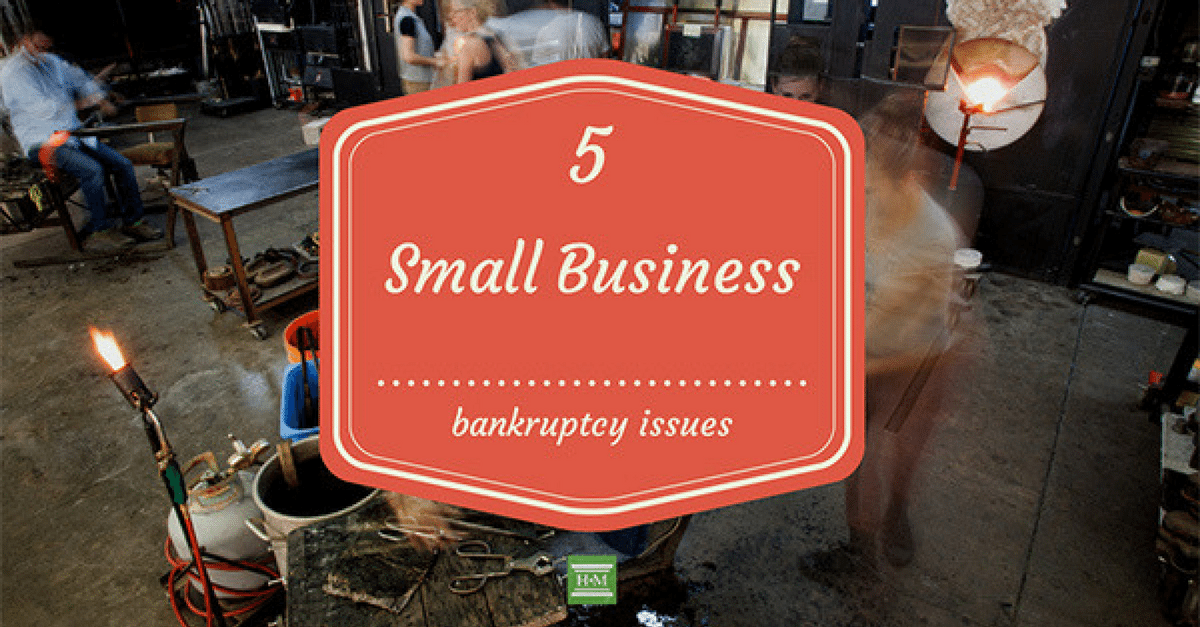
Approximately 1 in 10 insolvencies we file are for individuals who are self-employed or operating a small business at the time they declare bankruptcy. For anybody who is contemplating declaring bankruptcy, there are numerous potential issues or questions. For somebody who operates a small business or is self-employed, there is a unique set of issues to address. Here are 5 common concerns and issues you should be aware of if you are self-employed, in a sole proprietorship and are operating a small business and need to file bankruptcy.
Table of Contents
Can I continue to operate my business?
One of the most common concerns is if you are even allowed to continue a business if you file for bankruptcy. The simple answer is yes. However, there are some special issues you will face:
- if you were incorporated, you will have to continue as a sole proprietor; or
- resign as the director (since you can’t be the director of a corporation if you are bankrupt).
What happens to my assets or equipment?
Bankruptcy sometimes means that you lose some of your assets. For a small business, there is a bankruptcy exemption for ‘tools of the trade’ in Ontario for a realizable (sale) value of up to $14,405. If your equipment exceeds that value (on a liquidation basis, not cost), you will be required to pay the excess to keep the equipment.
How do you determine my income for bankruptcy purposes?
The length of time that you are in bankruptcy and the amount you are required to pay depends on your income level after the bankruptcy is filed. The concept is called surplus income. For somebody in a salaried position with the same pay every two weeks, it is very simple to make an accurate estimate. For somebody who is self-employed or operating a sole proprietorship (unincorporated business) your ‘income’ is based on net income. You are allowed to deduct legitimate business costs first.
Will I have access to credit?
There is the added difficulty that for a small business operator, income can fluctuate, sometimes quite significantly. This uncertainty makes it more difficult to determine the financial cost of bankruptcy.
Because of the variable nature of income, business owners tend to rely from time to time on overdraft or a line of credit. If you’ve filed bankruptcy, the existing credit facilities are gone. To apply for new credit, you are required by law to disclose that you are in bankruptcy. It might be that you are unable to obtain new credit.
Can I include debts owing to Canada Revenue Agency?
Income taxes and sometimes HST are often the largest debt for small business owners or self-employed individuals. A bankruptcy and consumer proposal are both options for tax debt relief. The exception would be if the CRA had registered a tax lien against your property prior to the bankruptcy being filed, since the lien makes the debt secured and bankruptcy only discharged unsecured debts.
The other issue with income taxes is keeping up to date after the bankruptcy is filed. Unlike credit cards, you do not need to be credit approved to incur new tax debts. Sometimes the challenge is because the business is struggling. Sometimes the challenge is because people are not good bookkeepers or don’t properly understand their tax obligations. Paying for an experienced bookkeeper is money well spent.
Do I have other options?
Yes, one of the most common alternatives to bankruptcy is to file a consumer proposal. A proposal allows you to keep all personal assets, including those you may be using in your business, and make a deal with your creditors to repay a portion of what you owe.
As you can see, there are many things to consider if you are filing bankruptcy and are self-employed or operate a small business. A licensed trustee can help you understand the issues so that you take advantage of the opportunity for a fresh start that a bankruptcy or consumer proposal brings. Contact us today for a free consultation. Will will review your situation, give you a plan to deal with your debt and answer any questions you have.
Similar Posts:
- Can Business Debts Be Discharged in Personal Bankruptcy in Canada?
- Bankruptcy Options in Canada
- Self-Employed and Considering a Consumer Proposal? 5 Things You Need to Know
- Can I Be A Director, Executor or Be Bonded If I File A Consumer Proposal?
- WSIB Debts, Clearance Numbers & Bankruptcy or Proposal






